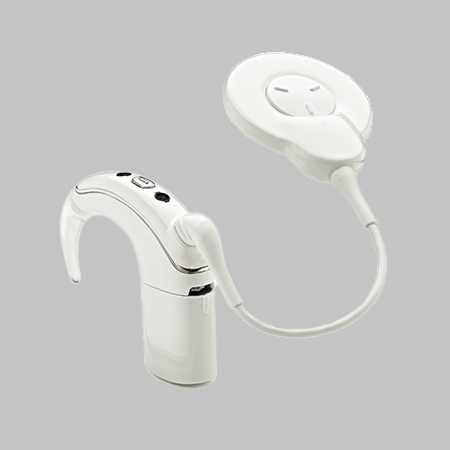You might feel frustrated if you’ve tried hearing aids, and they just don’t work for you. But luckily, there are several implantable hearing devices offered by Northern Hearing Services Inc that might open a new world of sounds. Our team will work with you to determine whether a bone-anchored hearing device or a cochlear implant will be the best fit for your needs and lifestyle.
How Do Implantable Devices Work?
Cochlear Implants
A cochlear implant is a device that stimulates the auditory nerve by using electrodes placed in the cochlea of the inner ear. This device has both external and internal parts. The external part sits behind the ear and picks up sounds with a microphone. The sound is then transmitted to the internal element of the implant.
In the United States, around 58,000 adults and 38,000 children received cochlear implants between 2012 and 2022. Across the world, approximately 324,200 devices have been implanted.
Bone-Anchored Hearing Devices
Bone-anchored implants allow you to hear sounds by transmitting vibrations to the inner ear. While traditional hearing aids amplify sounds that enter the ear canal, bone-anchored hearing devices bypass the ear canal and middle ear, similar to how cochlear implants work.
A bone-anchored hearing device consists of:
- A titanium implant
- An external abutment
- An external sound processor and microphone
The device sends sound vibrations through the external abutment to the titanium implant, which eventually integrates with the skull bone.


Am I a Good Fit for an Implantable Device?
Cochlear implants are often used in the following circumstances:
- You’re experiencing hearing loss that is not helped by hearing aids.
- You miss more than half of spoken words or rely on lip reading, even with hearing aids.
- You have profound sensorineural hearing loss, a condition involving damage to your inner ear.
Cochlear implants are the more common option of the two, and you’ll likely be able to receive one unless you have damage from a skull fracture, your auditory nerve is small or missing, the shape of your inner ear doesn’t allow for it or you have a rare tumor called neurofibromatosis type II (NF2).
You might be a good candidate for a bone-anchored hearing device if:
- You have single-sided deafness.
- You have malformations in the outer ear, middle ear or ear canal.
- You’re allergic to traditional hearing aids.
- You have Ménière’s disease.
- You experience chronic middle ear infections.
- You have cholesteatoma, or a growth of skin behind your eardrum.
- You have an acoustic neuroma, or a benign tumor that develops on your vestibular or auditory nerves.
Can Children Receive Implantable Devices?
In 2000, cochlear implants received FDA approval for use in children starting at 12 months old. The technology can potentially change the lives of children who are deaf or hard of hearing.
Using a cochlear implant when children are young connects them to sounds as they’re developing speech and language skills. Studies have shown that when a child receives implants and therapy prior to turning 18 months:
- They can hear, understand sound and music and communicate with others at better rates than children who receive implants when they are older.
- They develop language skills at similar rates to peers with normal hearing.
- They are often successful in mainstream classrooms.
If your child has conductive hearing loss, mixed hearing loss or single-sided deafness, a bone-anchored implant might be a good fit for them. For younger children and those who would prefer a nonsurgical option, certain sound processors can be held in place with a band or sticker. Our provider will work with you to determine what might work best for your child.
At Northern Hearing Services Inc, we’re here to guide you through your journey of getting hearing loss treatment. Whether you’re ready to move forward with an implantable hearing device or have more questions, we’re here to support you. We want you to connect with as many sounds in your world as possible.
Call Northern Hearing Services Inc for more information or to schedule an appointment.
(907) 561-1326

